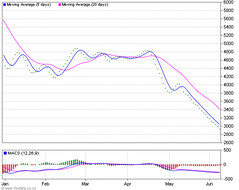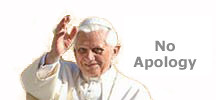I use an 8x10 view camera, which is a pondorous beast of a camera. With lens it weighs about 30 lbs. Each exposure is made on a single sheet of film measuring 8 inches by 10 inches. Everything is fully manual. Using one of these machines brings new meaning to the word pedantic.
When you make an image with one of these cameras, you have just spent around $10. At that burn rate, you pay great attention to detail and repetitive, failure-avoiding process. That, and a vast store of craft information takes care of execution.
But more than craft and execution is required to produce a silver print that is worth another's contemplation. Allow me to depart into a moment or two of pure vanity...
When one takes up practice in the expressive medium of photography, the typical learning curve attends to all the issues of craft. Assuming one approaches the craft with diligence, one ultimately achieves some degree of notable capability - perhaps even mastery. Having surmounted this pinnacle, a vocabulary has been gained.
But what to say?
I came to realize that in the most successful, deeply moving images, the photographer is not the voice, but rather the medium. I'll explain it this way: the photographer learns to recognize the moment when an image presents itself, and then applies craft to make visible that which was felt in an instant. Anyone sufficiently involved in the medium will understand what I mean. Photographers learn to surrender to some force that is commanding, yet mercurial.
Discovery of this truth can set off disquieting tremors of introspection, moreso should the medium (i.e. the photographer) come from a background of logic, mathematics and science (all helpful in the process of mastery of craft). Is this force within, or without?
Surrendering in toto to this gradually more and more recognizable impulse yields images that are steeped in symbology. This is not imagined - honest work that has reacted to true moments of influence of this hitherto unenumerated force are universally moving. When executed with craft, these images have the power to reach deep into the underlayers of the human observer. It is a remarkable, wonderful and mysterious phenomenon.
I discussed this at length one night with Chris Rainier, who was Ansel Adam's assistant at the time I met them both. We each had independently produced a similar analysis, and shared the conclusion (delusion?) that we had learned, through the medium, to recognize points of power.
The significance of coming to this realization should not be taken lightly: it brought me to the belief that we are not simply blobs of protoplasm, organised in a temporary, brief but endlessly fascinating array of systems and processes, but hopelessly fated to simply cease to be. No, there is something else. There is an undercurrent which connects all things, and we are part of it, each individual.
There are consequences to this belief. When our perception of ourselves as a vessel, as a bearer of something grand takes root, we are imbued with a sense of responsibility. It is as though we have been kitted out with faculties and abilities, urges and cautions, and charged with our own unique mission to fulfill. Our life is not about fulfilling our momentary needs, but rather to engage in the process of discovery and bringing definition to that individual mission, and using the tools we are born with and have developed undertake its execution. If we are more than our mere corporal beings, we have that responsibility.
And that is why I need liberty. I cannot fulfill the mission to which this life I have been granted has been charged, unless I have the freedom to devote myself fully to it.
I find it strange to hear the collectivists talk of spirituality. A true belief in spirituality is forced to recognize the fundamental need for individual liberty. Collectivism and spirituality are orthagonal.
So I put before those who would have me conform to their correct view of the world and those within it: are you a vessel, an integral part of a larger schema, or are you a momentary and meaningless spark, needing nothing more than the gratification of each instant's whim?
I believe the former, which is why I believe mankind must have liberty.








 .
.







